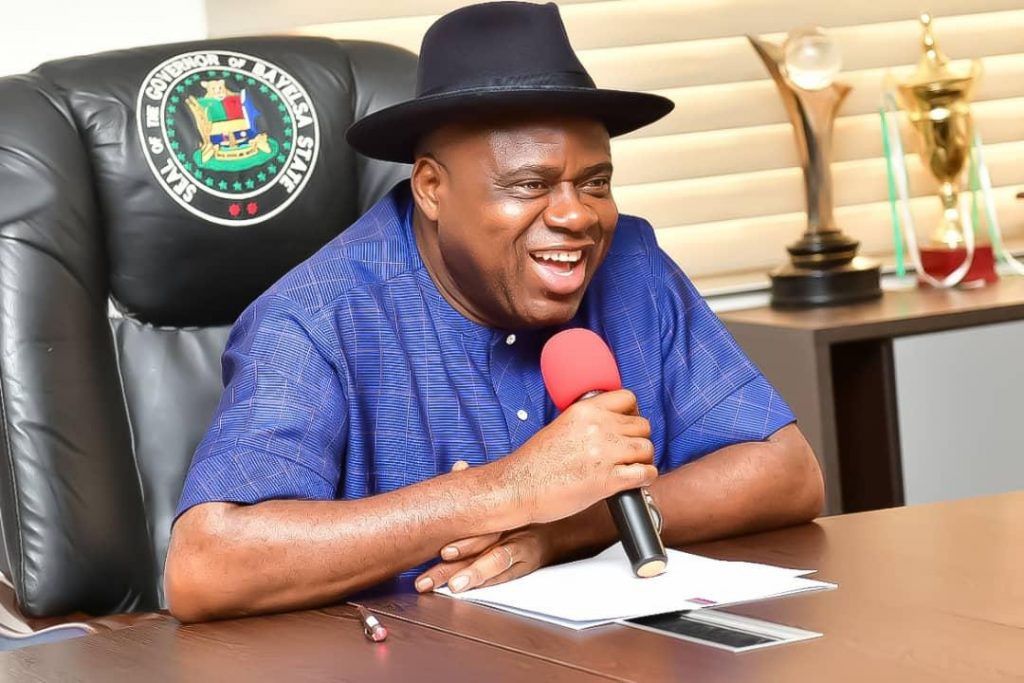Nathan Tamarapreye, Yenagoa
The Bayelsa government has dismissed the 2022 fiscal sustainability report amongst the federation states released by BudgiT, a public finance transparency-focused Civil Society Organisation.
Rivers tops the 2022 fiscal performance ranking, followed by Kaduna and Cross River while Yobe, Bayelsa and Benue sit at the bottom of the table.
The Bayelsa government in a statement by Mr Maxwell Ebibai, Commissioner for Finance questioned the basis for the recent 2022 Financial Responsibility report on the sustainability of the 36 States of the Federation by BudgiT.
The statement was titled, BudgiT Report: Our Position, Bayelsa Govt.
Ebibai who faulted the methodology used to arrive at the rankings which do not reflect the current financial standing of the state said the report is merely a rehash of the 2021 ranking.
“Our reaction then as now is that not only is this report faulty but relies on tangential parameters inconsistent with economic fundamentals.
“As before, the current report erroneously depended on opaque data and criteria bordering largely on the ability of a state to meet its operating expenses (recurrent expenditure) with only its Internally Generated Revenue.
“The very notion of creating a dichotomy between “Federal Allocations” and “Internally Generated Revenue” is a misnomer that is adding insult to painful injury as, over the years, we have protested the absence of true fiscal federalism and inequity of the revenue-sharing formula that robs states like Bayelsa in favour of the collective,” Ebibai stated.
He maintained that it is incomprehensible not to appreciate that oil and gas are produced at a significant opportunity cost to states and that the derivation revenue compensates for such brutal environmental degradation.
According to him, Bayrlsa government protested the 2021 ranking as being defective for excluding key revenue sources such as mineral oil derivation funds in the analysis, a position the BudgiT team acknowledged.
“We are again bewildered that they returned to this cynical profiling.
“It should be worrisome to BudgiT that the huge revenue that should accrue to Bayelsa State from taxes of oil multinationals operating in the state were being paid to states where the companies have their offices domiciled.
“Notwithstanding the disequilibrium, we are happy to state unequivocally that the financial standing and sustainability of Bayelsa State are sound and not in any jeopardy as the government can comfortably meet its obligations, including regular payment of salaries and pensions,” the statement read in part.
Ebibai noted that it is also disturbing that a state with a low debt profile that is effectively managing its financial liabilities would be ranked low against states with a higher debt profile. , more so when Bayelsa is clearing its debts.
On biometric capturing of the state’s civil servants, Ebibai stated that Bayelsa has successfully concluded the process to achieve payroll transparency.
According to him, the government continues to invest in human capital development and empowerment programmes, without neglecting critical financially demanding infrastructure projects such as the Yenagoa-Oporoma Road and Bridges, the Sagbama-Ekeremor Road with seven bridges and the Nembe-Brass Road with 10 bridges amongst other projects across the state that will stir its economic life.
Ebibai noted that states with limited federal presence are inherently disadvantaged with the ranking methodology where facilities like ports give a clear edge to some states.
He recommended that for a fair analysis and a more comparable measure of fiscal sustainability, BudgiT should expand its indices to cover derivation revenue as IGR in future profiling.
He explained that the Bayelsa government was in strong disagreement with the ranking as released by BudgiT, and wish to state categorically that the Bayelsa government rejects the report as it failed to rely on key financial instruments that are legitimate, equitable and sustainable.

